A. H. Nasution and Indonesias Elites
A. H. Nasution and Indonesias Elites
Peoples Resistance in the War of Independence and Postwar Politics
Barry Turner
LEXINGTON BOOKS
Lanham Boulder New York London
Published by Lexington Books
An imprint of The Rowman & Littlefield Publishing Group, Inc.
4501 Forbes Boulevard, Suite 200, Lanham, Maryland 20706
www.rowman.com
Unit A, Whitacre Mews, 26-34 Stannary Street, London SE11 4AB, United Kingdom
Copyright 2018 by Lexington Books
All rights reserved . No part of this book may be reproduced in any form or by any electronic or mechanical means, including information storage and retrieval systems, without written permission from the publisher, except by a reviewer who may quote passages in a review.
British Library Cataloguing in Publication Information Available
Library of Congress Cataloging-in-Publication Data
ISBN 978-1-4985-6011-5 (cloth: alk.paper)
ISBN 978-1-4985-6012-2 (electronic)
 The paper used in this publication meets the minimum requirements of American National Standard for Information SciencesPermanence of Paper for Printed Library Materials, ANSI/NISO Z39.48-1992.
The paper used in this publication meets the minimum requirements of American National Standard for Information SciencesPermanence of Paper for Printed Library Materials, ANSI/NISO Z39.48-1992.
Printed in the United States of America
Contents
I would first like to thank and acknowledge the invaluable contribution of Professor Ken Young to the development and completion of the PhD thesis upon which this book is based. We both experienced changes in our lives and places of employment during this period and I have always been most grateful for his consistent and unfailing support that encouraged me to persevere. In particular, I would like to thank him for the scholarly rigor that he sought to implant in me, and for his many valuable insights that greatly assisted me.
Brian Hill, Eric Kuntzman and Della Vache of Lexington Books and Jayanthi Chander and her team from Deanta Global were patient, helpful and efficient in having my manuscript reviewed and prepared for publication.
Greg Barton, who is currently at Deakin University, and Greg Fealey (now at the Australian National University) were helpful in providing information and guidance at the initial stages of my research.
The late Herb Feith was kind enough to assist me in compiling materials and recommending people to interview in Indonesia. Most importantly, he directed me toward the work of David Bourchier, which inspired me to examine factors other than instrumental ones that encouraged A. H. Nasution to embrace corporatist / functional forms of interest representation.
The late Daniel S. Lev was also very helpful in sharing his knowledge of 1950s Indonesian politics and personalities with me.
I was fortunate to work for Lieutenant Colonel (later Brigadier) Ken Brownrigg at the Australian Defence Force School of Languages. In a subsequent posting as Defence Attache in Jakarta, Ken was unfailingly supportive and helpful.
Bob Lowrys research into the Indonesian Army was also very useful and I greatly appreciated documents he provided to me from his archives.
A number of people assisted me in finding information in Indonesia. They include members of the Kolopaking family and Professor Rahayu Surtiati in particular. Ron Witton, Sofia Mansour and Pak Setyadi from the Bahtera email discussion forum were of very great assistance in tracking down details on Nasutions family, as was Tantono Subagyo who kindly sought information on Nasutions father-in-law from Professor Soejono. Lieutenant Colonel (Retired) Pamurahardjo and Brigadier General (Retired) Suhario Padmodiwiryo provided invaluable information. Mas Hardoyo, at the request of Herb Feith, was kind enough to put me in touch with Pamurahardjo.
I learned a great deal about Indonesian Army culture from lecturing at the Pusdiklat Bahasa (Centre for Training and Education Languages). I am grateful to the military and civilian staff for the kindness they showed me during those visits. More recently, Lieutenant Colonel Rois Nahrudin (who was a student of mine at the Pusdiklat Bahasa) was of very great assistance in gaining approval from the Indonesian Armys Directorate of History for me to extract and translate extensively from the memoirs of Nasutions late wife, Johana Sunarti.
Dr. Sisilia Halimi from the University of Indonesia worked untiringly to seek approval for me to extract similar numbers of words from Nasutions voluminous memoirs and other works. Unfortunately, this effort met with less success because of uncertainty about ownership of intellectual property, but I was able to extract and translate sufficiently from each of them to provide insights into his personality and ways of thinking.
Of course, none of the above people are responsible in any way for the contents of this book and its shortcomings.
Finally, I would like to acknowledge my family. My late father and mother profoundly influenced me in all aspects of my life but my father was particularly responsible for my thirst for education. His formal education was cut very short by osteomyelitis that resulted in his spending extended periods of his childhood in the hospital. He was unfailingly kind and honest, admired education, and sought to inform himself as much as he could about politics. Our dinner table was the scene of many heated exchanges on issues of the day that inspired a lifelong interest in politics that ultimately led to me undertaking this thesis.
My wife, Glenys, has been an absolute rock of support throughout our married life. I thank her for her kindness, common sense and tolerance, and for checking the manuscript of this book. My children, Stephen and Sharon, have also been a source of great happiness and pride and I would like to thank and acknowledge them as well.
The spelling system of the Indonesian language has undergone many changes over the past century, and this has made the task of according spelling conventions to names in this book somewhat complex. Originally, Dutch spelling conventions were applied but some of these were changed in the 1940s. For example, the Dutch-derived oe was replaced by the English-derived u.
The spelling system was perfected in 1972 and the remaining Dutch-derived conventions were dropped. For example, the Dutch-derived sj , tj and dj were replaced with sy , j and j . However, the spelling of Indonesian names is highly idiosyncratic. Many Indonesians chose to retain the Dutch spelling of their names but references to them in the media and other texts often adopt the new conventions. Organizations emerged and disappeared at different points of this continuum, leaving the spelling of their names in something of a limbo.
I have elected to use the new perfected spelling throughout this book, except for the names of people where they are more recognizable if older systems are retained.
In translating materials from Indonesian into English I have had to choose between an idiomatic or literal approach. As Mildred L. Larson defines the term:
Idiomatic translations use the natural forms of the receptor language, both in the grammatical constructions and in the choice of lexical items. A truly idiomatic translation does not sound like a translation. It sounds like it was written originally in the receptor language. Therefore, a good translator will try to translate idiomatically. This is his goal.
Nevertheless, Larson also goes on to note that:
translations are often a mixture of a literal transfer of the grammatical units along with some idiomatic translation of the meaning of the text. It is not easy to consistently translate idiomatically. A translator may express some parts of his translation in very natural forms and then in other parts fall back into a literal form.

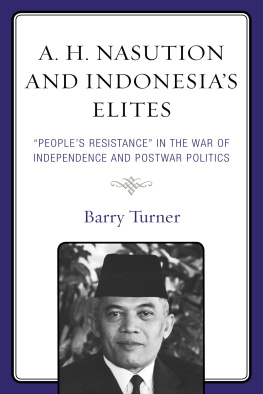
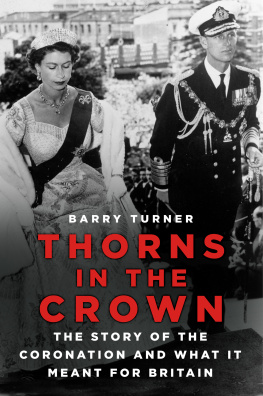
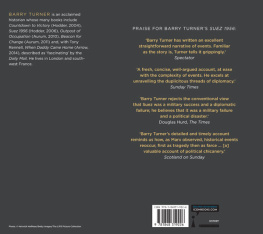
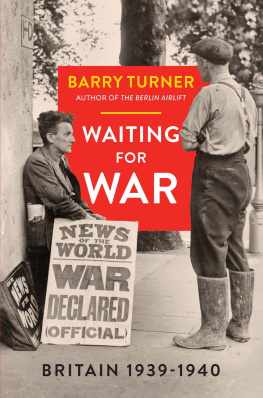

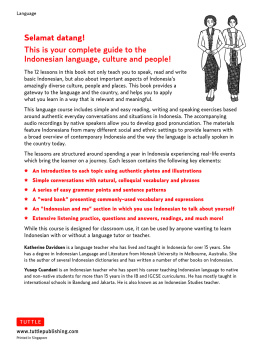
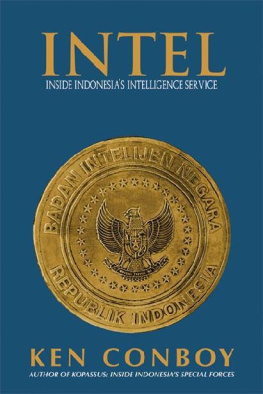
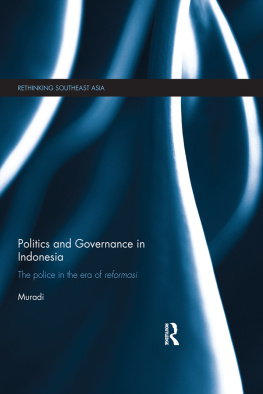
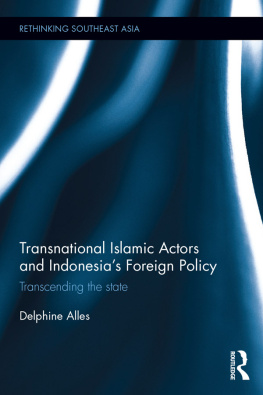
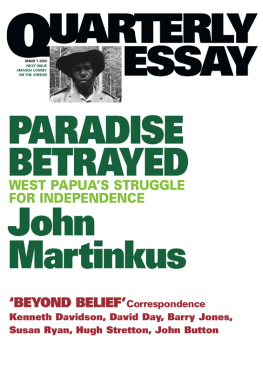

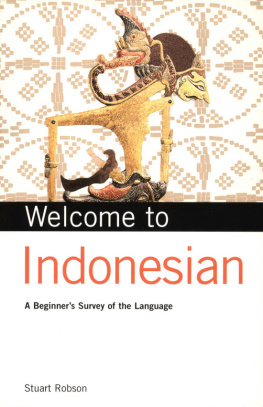
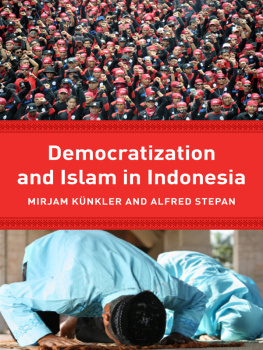
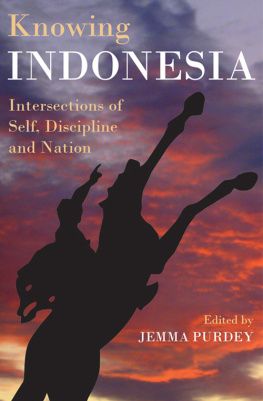

 The paper used in this publication meets the minimum requirements of American National Standard for Information SciencesPermanence of Paper for Printed Library Materials, ANSI/NISO Z39.48-1992.
The paper used in this publication meets the minimum requirements of American National Standard for Information SciencesPermanence of Paper for Printed Library Materials, ANSI/NISO Z39.48-1992.